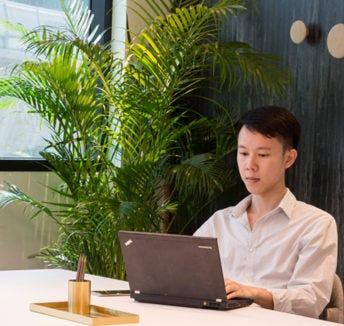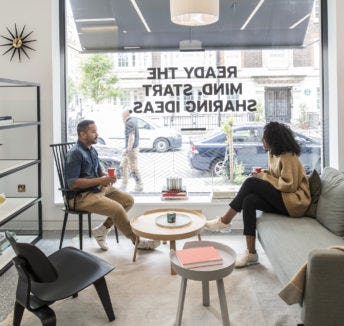
While the COVID-19 pandemic poses challenges for many businesses, there are also blue skies – literally. The worldwide lockdown resulted in a striking drop in pollution levels, as well as unintended social benefits arising from people cutting the commute and working at home.
Below are five important things that the crisis showed us about the world and how we work. Learning from these will be the key to unlocking a greener, happier future for us all.
1. The global lockdown had a positive impact on the environment
Around the world, the environmental impact of the lockdown led to a decrease in pollution levels. In March 2020, carbon monoxide, mainly from cars, in New York was reduced by nearly 50% compared with the previous year. There was also a 5-10% drop in CO2 and methane.
In China, during February, CO2 emissions were down by at least 25%, according to the Centre for Research on Energy and Clean Air (CREA), reported CNN. The organisation estimated it was equivalent to 200 million tons of carbon dioxide – more than half of the entire annual emissions output of the UK.
2. And there was a knock-on positive effect for people, too
While nobody denies that the COVID-19 crisis put unimaginable stress and worry on the shoulders of many people, there were small silver linings too. For the first time, many people were able to experience the perks of remote working – albeit in modified circumstances. Research in 2018 revealed that commuters experience up to 30 per cent more pollution than those who work from home. This was slashed to zero as a result of homeworking.
A further example comes from fitness and sleep trackers during the pandemic, as reported by Fast Company. The data showed that the duration and quality of many people’s sleep has improved during the coronavirus crisis – “likely because we no longer need to commute”.
3. It made people question their carbon footprint
Pre-pandemic, experts already had theories about the role of commuting on pollution levels:
in December 2019, Harvard Business Review suggested that commuting alone by car was a significant contributor to emissions (24% of global energy-related CO2 emissions come from transportation). “By working near or at home and only working three days a week, you can reduce your CO2 footprint by more than 2.2 tons annually,” added Fast Company.
The striking results of the lockdown proved the theories to be correct. And with this in mind, many people started to wonder if commuting was truly compatible with a greener future.
4. Although they still want a bit of a commute
It seems that people do appreciate some separation between work and home. Homeworking – while convenient during a crisis – can be full of distractions, can lead to loneliness, and can have a negative effect on your productivity, creativity and health.
A short commute is even endorsed by science. An increasing amount of research shows that ‘active commutes’, which involve walking or cycling, can make life better – even being as important to wellbeing as a marriage or a pay rise. Of course, the additional benefit of an active commute is the minimal impact on the environment.
5. A greener, happier society still include coworking spaces
Much has been written about the coworking space following COVID-19, but experts suggest we shouldn’t write them off. While the spaces may need to be modified to reflect physical distancing guidelines, they will still offer a vital role for society.
“They might even help local business communities and regions recover faster,” suggests Dane Stangler, the Director of Policy Innovation at the Progressive Policy Institute (PPI), writing for Forbes. “Just as important as economic impact is the community dimension. That will be critically important for recovery and rebound,” he says.
“As we move into a future defined by some ever-present level of social distancing, community ties could fray… [leading to a situation] which will be hard to restore,” he adds. “Entrepreneurs, business owners, and workers will need social networks and local connections more than ever.”
Physical distancing and prolonged isolation can strongly impact your morale and productivity. That’s why, at Spaces, we’ve prepared our workspaces for the future so you can safely meet, work and collaborate with like-minded professionals again. And if you’re done with long commutes, you can find a location near you right here.
Share this article
 Read now Ask the experts: will we see a permanent shift towards remote working?
Read now Ask the experts: will we see a permanent shift towards remote working?
 Read now Has the pandemic changed the way we’ll look at recruitment?
Read now Has the pandemic changed the way we’ll look at recruitment?